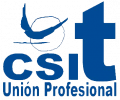Launch meeting – Online – 24.10.2022
Cooperation as a key element to overcome challenges in the displacement of workers in the healthcare, construction, transportation, and agriculture sectors 24/10/2022, ONLINE
Attendees at the Launch Meeting:
- CSIT UNIÓN PROFESIONAL, Spain [Ángel Lozano – Expert]
- European Institute of Labor Mobility, ELMI, Poland [Marek Benio (lawyer and economist), Marcin Kielbassa (lawyer), and Pawel Polaczuk (lawyer)]
- Union of Health and Social Care Employees, SZZSZS, Serbia [Radmila Obrenovic (Biochemist) and Gordana Petkovic (economist)]
- Solidaritet Norge, Norway [Artur Kubik (economist and sociologist)]
- National Federation of Administration Unions, FNSA, Romania [Nicolae Muresan (lawyer and vice president of the union) and Dan Illiescu (from the Statistics Institute union)]
- Association of Construction Entrepreneurs, SPVS, Czech Republic [Tomas Majtner (Association Director) and Jana Chobotská]
- Construction Union (130 years of existence), Czech Republic [Pavel Zitko (union president) and Katerina Zitková]
- Social Security Institute, ZUS, Poland [Krzysztof Delert-Urban and Karina Barantseva (working on contributions, pensions, and A1 documents)]
Welcome and Partners’ Presentation: After welcoming the attendees to the project, Ángel Lozano, on behalf of CSIT UNIÓN PROFESIONAL, introduced himself and his organization. Each attendee then proceeded to introduce themselves individually and present their respective organizations.
Project Presentation: The representative of the beneficiary organization, Ángel L., highlighted key aspects of the project, starting with its objective: to increase the effectiveness of implementing the fundamental rights of displaced workers while ensuring their free and fair movement. The project aims to develop solutions, in cooperation with social partners and public organizations, to overcome barriers and difficulties in monitoring and implementing the provisions of the Directive on Posted Workers in the sectors of healthcare, construction, transportation, and agriculture.
He emphasized how the heterogeneity of the partners (unions, employers, and public bodies) and their knowledge about the specific characteristics of the sectors addressed in the project could provide different perspectives for problem analysis and solution-seeking.
Project Activities and Design: Regarding the planned activities, it was stated that the project has a duration of 18 months, starting from September 1, 2022. The activities are as follows:
- Launch Meeting: Online meeting held on October 24, 2022.
- Expert Meeting: Online meeting with the participation of two individuals from each participating partner. The meeting aims to discuss the most important problems related to the displacement of workers, seek solutions, and gather conclusions from the project’s main expert in the form of training or informational materials.
- Training Course: A 2-day course aimed at representatives of workers, employers, and state organizations involved in worker displacement. The course will be held in Spain.
- National Mobility Workshops: Two workshops will be conducted in each participating country with 25 attendees in each. The workshops aim to train representatives of workers, employers, and public organizations on improving employment and contracting conditions for posted workers in the project’s target sectors. The workshops are expected to take place between June and December 2023.
- European Congress on Labor Mobility: Scheduled for April 24-25, 2023, in Krakow. The number of attendees per partner is yet to be defined, but at least two individuals, along with an expert from each country, should participate.
- Final Meeting: An online meeting planned between February and March 2024.
Additionally, communication and dissemination activities for the project were explained:
- Promotion articles about the project: Results in national press and online media.
- Regular information content preparation on project development: Meeting minutes, photographic documentation of events, etc.
- Project dissemination through a website, social media, YouTube, etc.
- Other training and content materials.
Comments from the Project Coordinator, Mark Benio: He highlighted some existing problems among posted workers, such as the existence of an underground economy, lack of caregiver skills, defining service standards, ensuring service quality for users, establishing criteria for working hours, and clarifying specific caregiver functions that sometimes overlap with domestic tasks. One of the project’s goals is to raise awareness about the rights of posted workers.

